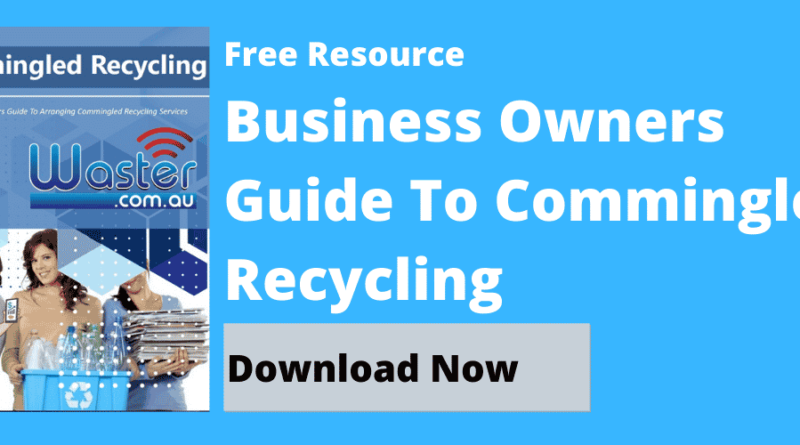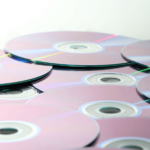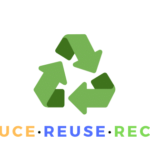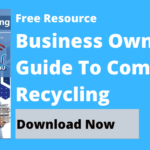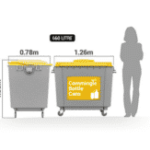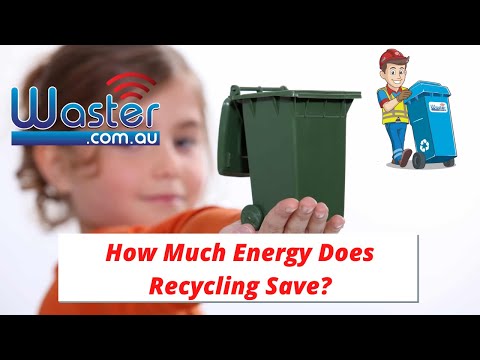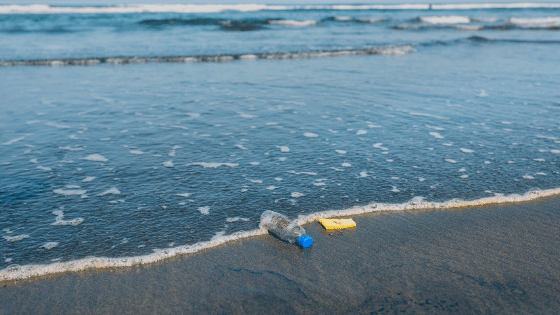How AI Can Help In Recycling ♻️🤖
Energy Disrupter
AI In Recycling ♻️🤖: With waste becoming more of a problem each day, how can we combat and mitigate its steady growth? The answer may be our own, technological future: AI. How does AI help in recycling? We will cover all of that in this blog, so read on to learn more.
As things slowly begin to open up in this pandemic again after a couple of years, expect that waste will, again, grow in number.
But even before, waste has steadily increased over the years. In the year 2016-2017, Australia was reported to produce 67 million tonnes of waste each year. We covered that in our blog discussing how much waste Australia produces. An excerpt below provides more statistics and ideas on how much waste we produce:
The report also states that 54 million tonnes of that said waste is known as “core waste”, which is taken care of by the waste and resource recovery industry. Additionally, the remaining 13 million tonnes of said waste is from electricity generation, mud from refining, farm manure, and liquid waste.
How can we deal with the growing amount of waste?
Obviously, one thing we could do is we could strengthen our recycling efforts to deal with our waste instead of immediately sending them to landfill or improperly disposing of them. However, is that really enough?
Methinks recycling could use a bit of a further boost. And what better way to boost recycling than to use technology, right?
Artificial Intelligence, or AI for short, has been steadily making rounds into the news through the years, solving problem after problem in the different industries the world has to offer. Recycling, of course, is no different and can be boosted by AI.
Below, we cover more about how AI can help in recycling.
Learn who Waster is and what it can do for businesses
Before we go further and learn more about how Artificial Intelligence (or simply AI) can help with our recycling efforts, let me share with you more information about Waster.
>Download Now: Free PDF Business Owners Guide To Commingled Recycling Bin Services
We here at Waster provide you with innovative solutions for your and your business’s waste management and recycling needs. Furthermore, we provide flexible, 30-day contracts instead of the typical lock-in contracts to SMEs, which proves to be better.
If your business is based in Australia, partnering up with Waster will prove to be beneficial for your business! Here, I enumerate to you what we bring to the table in terms of providing quality waste and recycling services.
- You pay exactly what you asked for – and not a dollar more! For your waste management and recycling needs, avail of our flexible, 30-day contracts instead of those long, unproductive and hidden fee-containing lock-in contracts.
- Designed for small and medium businesses – we help you reduce costs while boosting recycling. That’s a win-win situation!
- On-time and reliable – we provide fully-accredited logistics and facility operators. By saying so, we ensure the safety and efficiency of our services.
As such, in the waste management industry, problems are bound to rise like in any other business. Even AI in recycling, for now, has a few problems that need solving before entering the market, after all! If such issues arise in regard to our service, you can talk to our friendly customer service team.
Click on the blue button to learn more.
READ NOW: News On Lithium-Ion Battery Recycling 🔋 Taking A Look At Envirostream And LG’s Partnership
Now, on to AI in recycling!
How AI helps in recycling
One glaring waste problem that we have today is the inability to properly sort recyclables from non-recyclables. Plastic recycling, in particular, is, unfortunately, not properly sorted.
However, that will hopefully change thanks to the brilliant Dr Xu Wang and a formed team of researchers from the University of Technology Sydney’s Global Big Data Technologies Centre (GBDTC).
They have designed a hi-tech ‘smart bin’ that can automatically sort plastic recycling. The ‘smart bin’ hi-tech innovation is loaded with features, which include advanced technology by combining Artificial Intelligence (AI), robotics and machine vision. As mentioned by Euro News, this is not your run-off-the-mill wheelie bin!
“This machine can classify different (types) of waste including glasses, metal cans and plastics,” as mentioned by Wang.
Thanks to the AI and IoT (Internet of Things) present in this hi-tech wheelie bin, the bin can recognise different types of plastics including PET (polyethylene terephthalate) and HDPE (high-density polyethylene) – truly a huge boost in recycling.
“We combine the latest technologies including IoT (Internet of Things). We use different sensors to sense the weight, the matter and the materials. And also, we use the latest AI (artificial intelligence) technology,” as mentioned by Wang.
“So, you can see, we have a camera and we’re running an AI algorithm to classify different types of plastics and then we use IoT and other robotics technology to sort the waste into the bins,” added Wang.
The bin, for now, is still in its prototype stages and needs more trial and error to perfect it. However, the days it goes into the market looms nearer day by day, according to its inventors.
Advantages (and some disadvantages) of AI in recycling
There are valuable advantages of AI in recycling. Below, we enumerate them.
Some advantages of AI in recycling include the following:
- Quick data updates: AI has a mind of its own that can learn and store much-needed, valuable data over time. AI, along with robotics, includes a camera to take a look at each product and use data to determine where the said product will go. Now, to make things better, what the AI sees in recycling, it stores as data and constantly updates, which can help in the future. With technology’s rapid evolution, it may be possible that AI and robots alike will adjust on their own without human intervention in the future.
- Less need to rely on manual sorters: Combining AI and robotics can make recycling much easier and reduce the need to rely on manual sorters. Thanks to AI and robotics, the workers then could focus on other, more important tasks which helps speed up the recycling process.
- Significantly fewer errors: Human error, of course, is a part of life that we cannot remove. And with those workers that have less experience, the plastic-recycling sorting process starts off slow and less precise. But thanks to AI, recycling, in general, becomes much quicker, more precise and has better quality when it comes to sorting because of the stored data. As a result, more plastics become recycled.
As for some disadvantages when it comes to AI in recycling, it mainly boils down to cost.
- Added costs: For a recycling facility that intends to use AI, it can only get its money’s worth if it processes significant amounts of materials. Failure to do so will only incur financial losses. However, if a recycling facility does indeed invest in AI, it should expect lower hiring costs and better output in the future.
[embedded content]
Contact Waster right now for your waste and recycling needs now!
Does your Australian-based business need waste and recycling services? If so, then you have come to the right website!
Please call 1300 WASTER (1300 927 837). You can also email us at [email protected] or [email protected] if you have further questions. Find the best deals in terms of waste and recycling pricing and services!


